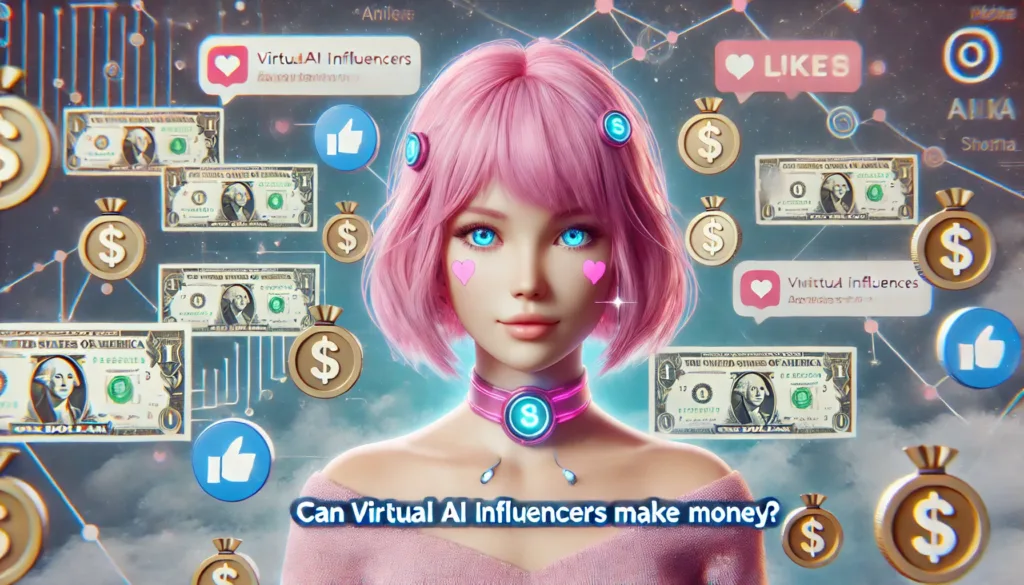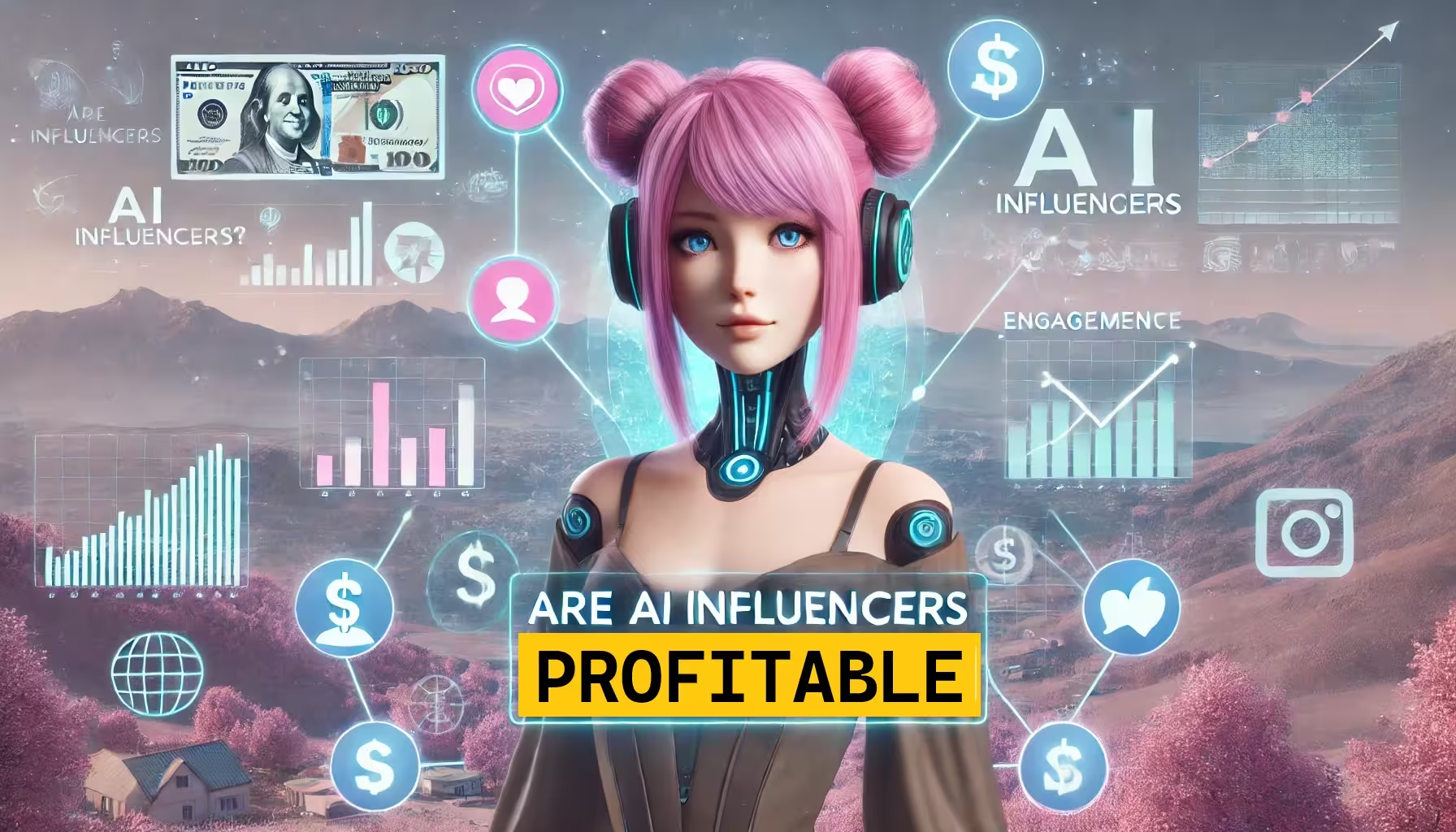We think that AI influencers can be profitable for brands, particularly when used strategically. They offer cost efficiency, precise targeting, and valuable data insights. These virtual personas, created using advanced machine learning algorithms, have opened up new avenues for brands to connect with their audiences. But the big question remains: can virtual AI influencers make money? Let’s break it down.
How Do AI Influencers Generate Revenue?
AI influencers operate similarly to their human counterparts. They engage audiences through social media platforms like Instagram, YouTube, and TikTok by posting content, endorsing products, and partnering with brands. For instance, Lil Miquela, one of the most well-known AI influencers, has collaborated with high-end brands such as Prada and Calvin Klein, showcasing their products to her millions of followers.
Brands find AI influencers appealing because they offer precise control over messaging and can be customized to target specific demographics. This level of control can lead to more effective marketing campaigns. For example, IKEA’s collaboration with the virtual influencer Imma showcased home decor ideas that resonated with a younger, design-conscious audience.
Are AI Influencers Profitable?
Assuming AI influencers can make money, the next question is whether they are profitable. The profitability of AI influencers depends on several factors:
- Cost Efficiency: AI influencers eliminate many logistical costs associated with human influencers, such as travel, accommodation, and scheduling. They can also work around the clock without the need for breaks, making them highly efficient.
- Audience Engagement: AI influencers can attract large followings, as evidenced by Lil Miquela’s millions of followers. Brands that partner with these influencers can tap into these established audiences. According to a survey, 49.3% of people have a very positive perception of AI influencers, while 28% are neutral.
- Market Reach: AI influencers can be designed to cater to specific markets. For instance, Tesla used the AI influencer Ling to expand its reach in China, leveraging her ability to connect with local cultural preferences.
- Data and Feedback: AI influencers provide brands with valuable data on user interactions. This real-time feedback helps in refining marketing strategies and tailoring content to better suit audience preferences.

While AI influencers offer numerous benefits and they can make real money, they also present challenges. Authenticity is a significant concern; AI influencers cannot genuinely experience or endorse products. This can lead to skepticism among consumers who value authentic, relatable endorsements. Additionally, ethical considerations, such as potential biases and the impact on human influencers’ livelihoods, cannot be overlooked

